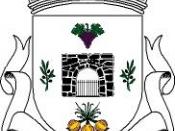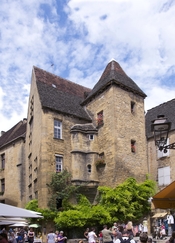Give & Take In the time of dissension, and array there rose a relationship between free men. Not one of servitude but of respect and equal admiration. The days of chivalry, honor, and loyalty began its ascension into the history of the world. Kings and lords ruled most of the land and vassals protected and cared for it. How did this social structure evolve into what most of us envision as medieval times? The lack of government was the primary reason; with no protection from invading forces no one was safe. This intern forced many peasants to find lords to protect them in return for services which created another class known as vassals.
The obligations of a vassal to his lord was rather simple, six such virtues to govern him while in the retainer of his lord. Harmless, safe, honorable, useful, easy, practicable were the things a vassal to his lord he must remain.
Not to bring any unnecessary harm to his lord and to keep his lord safe and his property. To be honorable in all things and be useful, furthermore; to make the life of his lord easy and to make what was practice not be like a yoke upon the shoulders of his lord. In doing so, the vassal then himself may be come a lord one day, in which many did.
Such obligations were also put on the lord for such loyalty. For the military manpower that the vassals provided the lords they would bestow unto them benefices, or land, to provide the economical support that the vassals needed to pay for training and other such endeavors. Needless to say the lords also were to adhere to the six virtues that were place on his faithful vassals. So that he may not himself be looked upon as perfidious and perjured.
This system is quite similar to the Roman system of patricians and plebeians. The clients would pay the patricians and in turn get many opportunities. The Patricians would advise the clients in anything they would need help in or help them find positions of work. This system would then go up through the social hierarchy from the rich, to the nobles, up to the rulers, kings, and emperors. Also the structure and hierarchy of the church resembles the hierarchy of positions in feudalism. The lords and vassals are similar to the cardinals, bishops, and abbots of the church. Also the church granting land and positions is similar to the role of the lords.
The benefice, also known as fiefs, became the backbone of the lord-vassal relationship as the economy of the times was rather slow with little or no trade and mediocre wealth. The fief became the fundamental gift a lord could give to a vassal. With the acquisition of land come jurisdiction of that land and this launched a new political and legal authority. So many sub lords started to become more prestigious in nature.
I feel that Fulbert's statement do show some merit in there ideology but in application I believe that the nature of the relationship between lord and vassal was more or less you scratch my back and I'll scratch yours. (As long as it benefits me more in the long run.)





